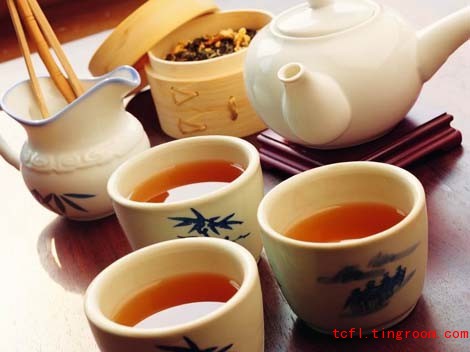
Tea, a drink pioneered by the Chinese, is brewed by infusing tender buds picked from tea trees in boiled water after baking. Legend has it that tea was first discovered by Emperor Shennong, who was tasting hundreds of herbal medicines to test their medicinal power in southwest China. Tea was originally used for detoxification and meant to be chewed in the mouth. Later, people began to steep it in water. Maybe because the drink has a slightly bitter taste, it was called “tu” (meaning “a bitter edible plant”) before the Qin and Han dynasties and wasn’t officially named “tea” until the Han Dynasty.
In the Han Dynasty some 2,000 years ago, the Chinese already knew a lot about tea and gained a wealth of experiences, including tea species, baking skills, infusing, water selection, tea utensils and ways to use them etc, initially forming a set of tea drinking etiquette and customs. Meanwhile, along with the development of trade links with neighboring and central Asian countries, Chinese tea was among the goods envoys of Emperor Wu of the Han Dynasty brought to other parts of the world via “the Silk Road”.
In the Tang Dynasty, rich experiences in the tea culture had been accumulated. Around 758 AD, a man named Lu Yu wrote Cha Ching (Classic of Tea), in which he summarized the knowledge and techniques about tea before and after the Tang Dynasty, including the history, production places, effects, cultivation, picking, baking and drinking etc.
In the Song Dynasty, tea drinking became more popular. Tea houses were everywhere in the capital city of Bianliang and those carrying a kettle for tea making were called “tea doctors”. Since the Ming and Qing dynasties, drinking tea has not only been an elegant hobby shared by high-ranking officials, scholars and ordinary people, but also been enjoyed by people across the world.
Today, people all over the world are showing special interest in Chinese tea. Clearly, this is not just because the drink’s thirst-quenching and mind-refreshing effects, but also because its unique healthcare functions and the cultural profoundness in the art, etiquette and customs of tea.
 English
English Japanese
Japanese Korean
Korean French
French German
German Spanish
Spanish Italian
Italian Arab
Arab Portuguese
Portuguese Vietnamese
Vietnamese Russian
Russian Finnish
Finnish Thai
Thai dk
dk